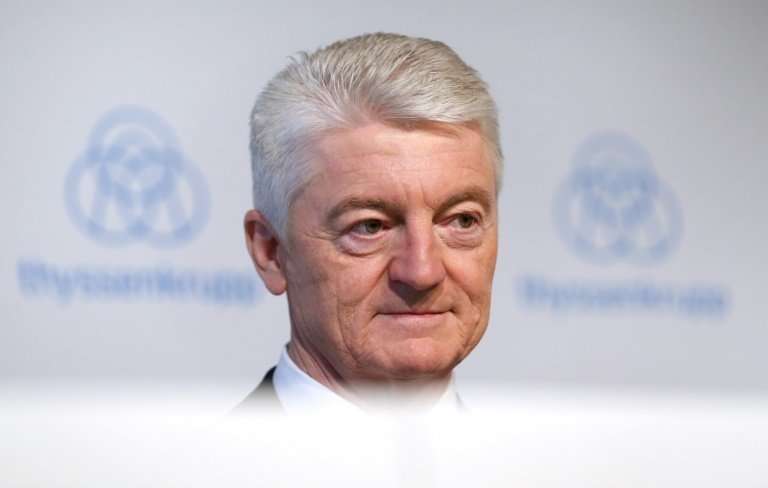Heinrich Hiesinger, chief executive of German industrial group ThyssenKrupp, has announced his resignation after the merger of steelmaking operations with India's Tata
The chief executive of German industrial giant Thyssenkrupp has handed in his resignation, less than a week after a merger of its steelmaking business with India's Tata, creating Europe's second biggest steelmaker, the group said Thursday.
"The supervisory board will meet tomorrow (Friday) to discuss and decide on the request of Mr Heinrich Hiesinger," Thyssenkrupp said in a statement, adding that Hiesinger was seeking to end his tenure by "mutual accord."
"I am taking this decision to allow a wide-ranging discussion within the advisory council on the future of Thyssenkrupp," a statement quoted Hiesinger as saying while the firm gave no further information on his reasons for going.
Last Friday, Thyssenkrupp said it had agreed to merge its steelmaking business with Tata as a response to a flood of cheap Chinese steel unbalancing world markets.
Bosses hope the tie-up will create between 400 and 500 million euros ($468-585 million) per year in savings, but 4,000 jobs are also set to go as a result leaving some 48,000 employees spread across 34 sites.
Last December, however, Thyssenkrupp offered guarantees against layoffs and site closures to powerful German trade union IG Metall after several demonstrations against feared job losses.
Thyssenkrupp has additionally been under pressure from activist investors such as investment firm Cevian, a key shareholder, and Elliott, a hedge fund.
Handelsblatt financial daily indicated that a Cevian representative was one of two advisory board members to have voted against the merger with Tata.
The newspaper quoted well-informed suorces as saying Cevian had urged Hiesinger to oversee a more radical restructuring which he had refused.
© 2018 AFP
























